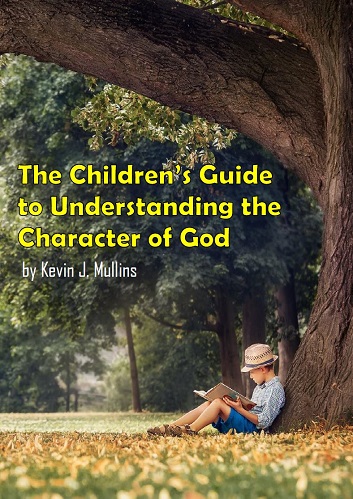(Acts 12:23) Did the Angel of the LORD Kill Herod?
“And immediately the angel of the Lord smote him (Herod Agrippa), because he gave not God the glory: and he was eaten of worms, and gave up the ghost.” (Acts 12:23)
In order to fully understand what’s going on here, we must compare this to the incident involving Peter which is mentioned in the same chapter of the book of Acts:
“And, behold, the angel of the Lord came upon him (Peter), and a light shined in the prison: and he smote Peter on the side, and raised him up, saying, Arise up quickly. And his chains fell off from his hands.” (Acts 12:7)
In both instances the same Greek word πατάσσω (patassó) is used which is translated as “smote” in the King James Version. What was the difference in the stroke that Herod experienced compared to Peter? Herod ended up dying but Peter remained alive. Why is this? Again, we must compare other Scriptures. Notice what we read in the book of 2 Kings:
“And it came to pass that night, that the angel of the LORD went out, and smote in the camp of the Assyrians an hundred fourscore and five thousand: and when they arose early in the morning, behold, they were all dead corpses.” (2 Kings 19:35)
Here the Hebrew word for smote is נָכָה (nakah) and it certainly appears that the angel went out and killed the Assyrians. However, this same word is also used in the case of David:
“And it came to pass afterward, that David's heart smote (nakah) him, because he had cut off Saul's skirt.” (1 Samuel 24:5)
 “And David's heart smote (nakah) him after that he had numbered the people. And David said unto the LORD, I have sinned greatly in that I have done: and now, I beseech Thee, O LORD, take away the iniquity of thy servant; for I have done very foolishly.” (2 Samuel 24:10)
“And David's heart smote (nakah) him after that he had numbered the people. And David said unto the LORD, I have sinned greatly in that I have done: and now, I beseech Thee, O LORD, take away the iniquity of thy servant; for I have done very foolishly.” (2 Samuel 24:10)
What does it mean that David’s heart smote him? It’s talking about the conviction of sin. “David’s heart convicted him.” Notice how the New Living Translation translates 2 Samuel 24:10:
“But after he had taken the census, David’s conscience began to bother him. And he said to the LORD, 'I have sinned greatly by taking this census. Please forgive my guilt, LORD, for doing this foolish thing.'”
With this understanding is it not reasonable that the angel of LORD was merely convicting the conscience of the Assyrian soldiers instead of killing them? And could we not apply this same principle to the case of Herod? Herod transgressed the Law and broke the everlasting covenant. The Word of God deeply convicted him of his sinful behavior in order to bring him to repentance. The conviction caused him agony of mind but he refused repentance.
Peter had a clear conscience, Herod did not. When Peter awoke he was not full of fear at the presence of the angel. Herod experienced something far different. Notice the following example of how even God’s voice can be experienced differently by different people:
“(Jesus said) Father, glorify Thy name. Then came there a voice from heaven, saying, I have both glorified it, and will glorify it again. The people therefore, that stood by, and heard it, said that it thundered: others said, An angel spake to him.” (John 12:28, 29)
The smiting which could have been as a still small voice was like thunder to Herod and it terrified him to death because he clung onto his self-condemnation, not believing in God’s everlasting forgiveness. He figured his sin was far too great to be forgiven. Thus Herod was given over to the enemy because He broke the covenant. God describes this process in the book of Leviticus:
“And I will bring a sword upon you, that shall avenge the quarrel of My covenant: and when ye are gathered together within your cities, I will send the pestilence among you; and ye shall be delivered into the hand of the enemy.” (Leviticus 26:25)
God never wields a literal sword to kill His enemies. His sword is His Word (Ephesians 6:17; Hebrews 4:12). This Word brings the conviction of sin, not to condemn, but to bring the sinner to repentance. God will not force those who refuse to repent and will tearfully permit the sinner to fall into the hands of the enemy who is the cause of the pestilence. Christ brought upon Herod the sword of His Word. Herod refused to repent and so he was delivered to the enemy who brought pestilence upon him.
Does God Send Calamities?
God does not “send” the pestilence Himself. The word “send” here is used in the sense of “permit.” To be consistent, those who wish to force a surface reading of scripture must believe that God Himself sends evil spirits to torment people as in the case of Saul:
“But the Spirit of the LORD departed from Saul, and an evil spirit from the LORD troubled him. And Saul's servants said unto him, Behold now, an evil spirit from God troubleth thee.” (1 Samuel 16:14, 15)
Did God really “send” an evil spirit to trouble Saul, or was it because “the Spirit of the LORD departed” that allowed an evil spirit to enter? Does God employ evil angels to destroy for Him or does He merely permit them to destroy as in the case of the plagues of Egypt?
“He cast upon them the fierceness of His anger, wrath, and indignation, and trouble, by sending (letting loose) evil angels among them.” (Psalm 78:49)
Does God really “send” lying spirits?
“Now therefore, behold, the LORD hath put a lying spirit in the mouth of all these thy prophets, and the LORD hath spoken evil concerning thee.” (1 Kings 22:23)
Commenting on this verse Adam Clarke writes:
“The Lord hath put a lying spirit - He hath permitted or suffered a lying spirit to influence thy prophets. Is it requisite again to remind the reader that the Scriptures repeatedly represent God as doing what, in the course of his providence, he only permits or suffers to be done? Nothing can be done in heaven, in earth, or hell, but either by his immediate energy or permission. This is the reason why the Scripture speaks as above.”
Paul also mentions this process of God sending (or permitting) delusion:
“And with all deceivableness of unrighteousness in them that perish; because they received not the love of the truth, that they might be saved. And for this cause God shall send them strong delusion, that they should believe a lie.” (2 Thessalonians 2:10, 11)
 Does God really harden people’s hearts as in the case of Pharaoh?
Does God really harden people’s hearts as in the case of Pharaoh?
“And I will harden Pharaoh's heart, and multiply My signs and my wonders in the land of Egypt.” (Exodus 7:3)
Or was it that Pharaoh’s heart hardened itself in refusing to repent of the conviction of sin?
“But when Pharaoh saw that there was respite, he hardened his heart, and hearkened not unto them; as the LORD had said.” (Exodus 8:15)
Commenting upon this principle Charles’ Spurgeon wrote:
“The same sun which melts wax hardens clay. And the same Gospel which melts some persons to repentance hardens others in their sins.”
And Paul wrote:
“Now thanks be unto God, which always causeth us to triumph in Christ, and maketh manifest the savour (fragrance) of His knowledge by us in every place. For we are unto God a sweet savour (fragrance) of Christ, in them that are saved, and in them that perish: To the one (the unbeliever) we are the savour (fragrance) of death unto death; and to the other (the believer) the savour (fragrance) of life unto life. And who is sufficient for these things?” (2 Corinthians 2:14-16)
Commenting on Acts 12:23, Alexander MacLaren describes this very principle:
"The angel was the same, and his celestial fingers were moved by the same calm, celestial will when he smote Peter into liberty and life, and Herod to death. The character of the effects depends on the men who are touched. As is the man, so is the effect of the angel’s touch. It could only bring blessing to the one who was the friend of the angel’s Lord, and it could bring only death to the other, who was His enemy. It could do nothing to the Apostle but cause his chains to drop from his wrists, nor anything to the vainglorious king but bring loathsome death.
This, too, is a universal truth. It is we ourselves who settle what God’s words and acts will be to us. The trite proverb, ‘One man’s meat is another man’s poison,’ is true in the highest regions. It is eminently, blessedly or tragically true in our relation to the Gospel, wherein all God’s self-revelation reaches its climax, wherein ‘the arm of the Lord’ is put forth in its most blessed energy, wherein is laid on each of us the touch, tender and more charged with blessing than that of the angel who smote the calmly sleeping Apostle. That Gospel may either be to us the means of freeing us from our chains, and leading us out of our prison-house into sunshine and security, or be the fatal occasion of condemnation and death. Which it shall be depends on ourselves. Which shall I make it for myself?" (MacLaren's Expositions, Acts 12:23)
Those who continue to believe that the angel of the Lord used lethal force on Herod must harmonize all the other passages of inspiration and preserve the character of Jesus as our perfect example that we can copy. Jesus clearly taught against the use of force. He is the express image of the Father who said, “Not by might, nor by power, but by My Spirit.” (Zechariah 4:6). God’s kingdom does not overcome evil by might or power, but by His Spirit – His everlasting affectionate self-sacrificing love. Jesus did not overcome evil by killing others, but by dying for them. As Christians, we overcome evil with good:
“Bless them which persecute you: bless, and curse not. Rejoice with them that do rejoice, and weep with them that weep. Be of the same mind one toward another. Mind not high things, but condescend to men of low estate. Be not wise in your own conceits. Recompense to no man evil for evil. Provide things honest in the sight of all men. If it be possible, as much as lieth in you, live peaceably with all men. Dearly beloved, avenge not yourselves, but rather give place unto wrath: for it is written, Vengeance is mine; I will repay, saith the Lord. Therefore if thine enemy hunger, feed him; if he thirst, give him drink: for in so doing thou shalt heap coals of fire on his head. Be not overcome of evil, but overcome evil with good.” (Romans 12:14-21)
We see that the angel that smites people resulting in death occurs when the Word of God convicts people of sin. The torment of one’s own sinfulness causes agony of mind. The presence of pestilence indicates that the Spirit of God has been removed and the destroyer has done his work as God ceases to protect those who refuse to repent. It is sin that punishes sin (Romans 6:23; James 1:14-15). Scripture says “Evil shall slay the wicked.” (Psalm 34:21), and Jesus equates the work of evil with the act of killing (Mark 3:4).
Keep in mind that Herod's death did not come immediatley at that very second. The conflict of his conscience being smitten built up over five days which led to his early death. Notice how 1st century historian Flavius Josephus explains Herod Agrippa's death (words within bold brackets [ ] are my own):
“Now when Agrippa had reigned three years over all Judea, he came to the city Cesarea, which was formerly called Strato’s Tower; and there he exhibited shows in honor of Caesar, upon his being informed that there was a certain festival celebrated to make vows for his safety. At which festival a great multitude was gotten together of the principal persons, and such as were of dignity through his province. On the second day of which shows he put on a garment made wholly of silver, and of a contexture truly wonderful, and came into the theater early in the morning; at which time the silver of his garment being illuminated by the fresh reflection of the sun’s rays upon it, shone out after a surprising manner [Acts 12:21], and was so resplendent as to spread a horror over those that looked intently upon him; and presently his flatterers cried out, one from one place, and another from another, (though not for his good,) that he was a god [Vs. 22]; and they added, 'Be thou merciful to us; for although we have hitherto reverenced thee only as a man, yet shall we henceforth own thee as superior to mortal nature.' Upon this the king did neither rebuke them, nor reject their impious flattery ["he gave not God the glory"; Vs. 23]. But as he presently afterward looked up, he saw an owl sitting on a certain rope over his head, and immediately understood that this bird was the messenger of ill tidings, as it had once been the messenger of good tidings to him; and fell into the deepest sorrow ["the angel of the Lord smote him"; Vs. 23]. A severe pain also arose in his belly, and began in a most violent manner … And when he had been quite worn out by the pain in his belly for five days, he departed this life.” (Josephus, Antiquities of the Jews, Chapter 19, Chapter 8, Section 2)
Eaten of Worms
The act of Herod being "eaten of worms" in verse 23 describes a disease called phthiriasis:
"Of all the legendary and fantastic diseases of ancient times, phthiriasis, or the lousy disease, was the most intriguing and bizarre. In the corrupted humours of the sufferers of this disease, lice were believed to develop by spontaneous generation, and tumours full of these insects rose on the skin. When such a louse tumour burst or was incised, a stream of insects swarmed out. The flesh of the sufferer was slowly eaten away and transubstantiated into lice, and he perished miserably in this 'most horrible of diseases'. Another singular characteristic for phthiriasis was that it was firmly believed to be a divine punishment to tyrants, desecrators and enemics of religion." (J. Bondeson MD PhD, Journal of the Royal Society of Medicine, Vo. 91, June 1998)
Interestingly, the Apocryphal book of Maccabees describes this same fate to Antiochus Epiphanes:
"But the Lord Almighty, the God of Isreal, smote him with an incurable and invisible plague: or as soon as he had spoken these words, a pain of the bowels that was remediless came upon him, and sore torments of the inner parts ... So that the worms rose up out of the body of this wicked man, and whiles he lived in sorrow and pain, his flesh fell away, and the filthiness of his smell was noisome to all his army." (2 Maccebees 9:5, 9)
God's Angels Seek to Save, Not Destroy
 God’s holy angels are not evil angels, thus they do not kill (see again Mark 3:4). They are not sent to destroy man but are “ministering spirits, sent forth to minister (serve) for them who shall be heirs of salvation.” (Hebrews 1:14). The angels of God are filled with the Spirit of Jesus; “For even the Son of man came not to be ministered unto, but to minister (serve), and to give His life a ransom for many.” (Mark 10:45). They keep the Father’s Commandments and they do not wield a physical sword. They are mighty in the Word of God and filled with the righteousness of Jesus. Their purity, love and holiness are a terror to the wickedness of sinners and their holiness strikes terror into the hearts of the unrighteous. They carry the “flaming sword” of God’s purifying Word (cf. Genesis 3:24; Jeremiah 23:29). Their holiness is their chief power yet they also have power to hold in check the forces of the wicked one:
God’s holy angels are not evil angels, thus they do not kill (see again Mark 3:4). They are not sent to destroy man but are “ministering spirits, sent forth to minister (serve) for them who shall be heirs of salvation.” (Hebrews 1:14). The angels of God are filled with the Spirit of Jesus; “For even the Son of man came not to be ministered unto, but to minister (serve), and to give His life a ransom for many.” (Mark 10:45). They keep the Father’s Commandments and they do not wield a physical sword. They are mighty in the Word of God and filled with the righteousness of Jesus. Their purity, love and holiness are a terror to the wickedness of sinners and their holiness strikes terror into the hearts of the unrighteous. They carry the “flaming sword” of God’s purifying Word (cf. Genesis 3:24; Jeremiah 23:29). Their holiness is their chief power yet they also have power to hold in check the forces of the wicked one:
“And after these things I saw four angels standing on the four corners of the earth, holding the four winds of the earth, that the wind should not blow on the earth, nor on the sea, nor on any tree. And I saw another angel ascending from the east, having the seal of the living God: and he cried with a loud voice to the four angels, to whom it was given to hurt the earth and the sea, Saying, Hurt not the earth, neither the sea, nor the trees, till we have sealed the servants of our God in their foreheads.” (Revelation 7:1-3)
These holy angels are not the ones who directly hurt the earth with these winds of strife, but once they let go and release their protection then the agencies of Satan are permitted to do their evil work. Therefore the righteous angels have tremendous power. When they are commanded to loose their arms, they can release the full force of Satan’s fury. Though they do not wish to do this, they will do it when they are commanded. This can only occur when a person refuses to heed the warning of God and persist in breaking His Commandments; for there is a point in one’s life when they are no longer even able to repent. Paul calls this condition as a “reprobate mind” (Romans 1:28). After years of long-suffering finally the Spirit of God driven back relents and allows the sinner to have the master they have chosen.
"He that is unjust, let him be unjust still: and he which is filthy, let him be filthy still: and he that is righteous, let him be righteous still: and he that is holy, let him be holy still." (Revelation 22:11)



.jpg)


